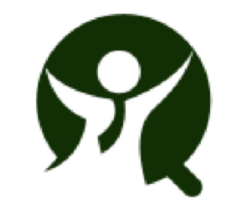Career opportunities in the pharmaceutical industry: useful tips

The U.S. pharmaceutical industry is one of the largest and most influential in the world, offering numerous career opportunities for professionals in research, manufacturing, quality control, sales, and more.
Breaking into this competitive field requires specialized knowledge, industry insight, and strategic preparation.
This guide provides actionable tips to help you secure a job in this dynamic industry.
1. Understand the U.S. Pharmaceutical Landscape
Start by familiarizing yourself with the major players and trends in the industry:
- Key Companies: Pfizer, Johnson & Johnson, Merck, Moderna, and Amgen are leading employers.
- Growth Areas: Biopharmaceuticals, gene therapy, and personalized medicine are rising.
- Regulatory Environment: Understanding FDA regulations and compliance requirements is crucial for many roles.
2. Gain Relevant Education and Certifications
Employers in the pharmaceutical sector value qualifications and specialized training:
- Degrees: A degree in pharmacy, biology, chemistry, or related fields is often required.
- Certifications: For manufacturing roles, consider certifications such as Certified Pharmaceutical Industry Professional (CPIP) or Lean Six Sigma.
- Advanced Degrees: Roles in research and development may require a master’s or Ph.D.
3. Build Industry-Specific Skills
Focus on developing skills that are in high demand:
- Technical Skills: Familiarity with laboratory techniques, data analysis, and tools like HPLC, LC-MS, or ELISA.
- Regulatory Knowledge: Understanding of Good Manufacturing Practices (GMP) and Good Clinical Practices (GCP).
- Soft Skills: Communication, teamwork, and problem-solving abilities.
4. Create a Targeted Resume and Cover Letter
Your resume should emphasize:
- Academic achievements and relevant coursework.
- Internship or work experience in pharmaceutical settings.
- Skills that match the job description.
In your cover letter, highlight your passion for the industry and how your qualifications align with the company’s mission.
5. Network with Industry Professionals
Networking is essential for uncovering job opportunities in the pharmaceutical sector:
- Attend Industry Events: Conferences like BIO International Convention or CPhI North America.
- Join Professional Organizations: Groups like the American Association of Pharmaceutical Scientists (AAPS).
- Leverage LinkedIn: Connect with professionals, join industry groups, and follow key companies.
6. Target Entry-Level Roles and Internships
If you’re starting your career or transitioning into the pharmaceutical field:
- Apply for entry-level roles like lab technician, quality analyst, or sales representative.
- Seek internships or co-op programs to gain practical experience and build connections.
7. Prepare for Industry-Specific Interviews
Interview preparation is critical:
- Technical Interviews: Expect questions on scientific methods, regulatory knowledge, and problem-solving scenarios.
- Behavioral Questions: Use the STAR method to demonstrate your experiences.
- Company Research: Show knowledge of the company’s products, recent developments, and corporate values.
8. Utilize Specialized Job Boards
Explore job opportunities through pharmaceutical-specific platforms like:
- PharmaceuticalCrossing: Focused on pharma jobs.
- BioSpace: Lists biotech and pharmaceutical roles.
- Indeed and LinkedIn: Broader platforms with pharma-specific filters.
9. Stay Updated on Industry Trends
Keep abreast of developments in:
- Emerging Treatments: Gene therapy, immunotherapy, and biologics.
- Market Changes: Mergers, acquisitions, and new drug approvals.
- Policy and Regulation: Changes in FDA guidelines or healthcare legislation.
10. Consider Relocation to Key Hubs
Certain U.S. regions are known for their pharmaceutical clusters, including:
- Boston and Cambridge, MA: Home to many biotech startups and research labs.
- San Diego, CA: A hub for pharmaceutical innovation.
- Research Triangle Park, NC: Known for R&D facilities and life sciences companies.
Conclusion
Landing a job in the U.S. pharmaceutical industry requires a combination of education, skills, and strategic job search efforts.
You can position yourself as a competitive candidate in this ever-evolving sector by building a strong resume, networking effectively, and staying informed about industry trends.
